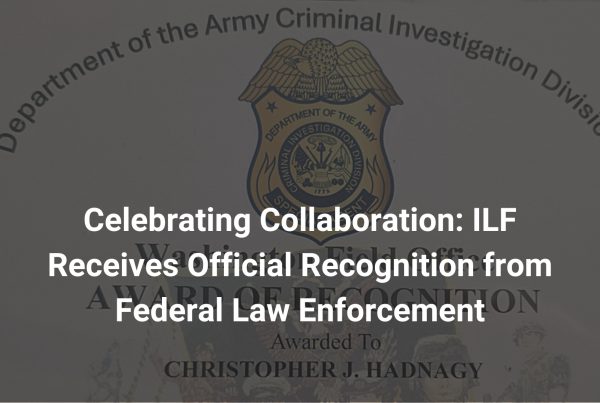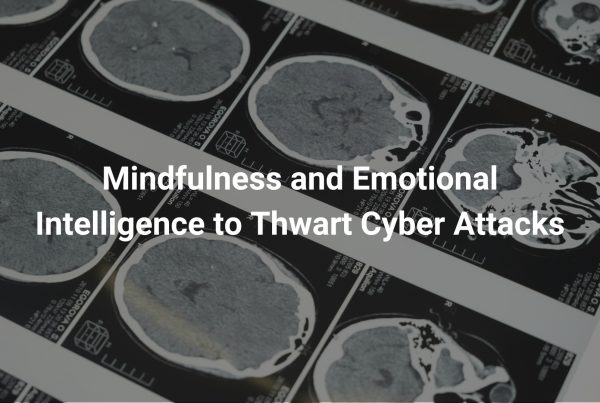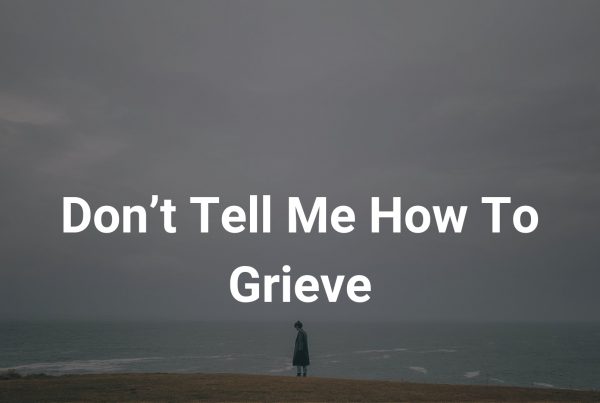WARNING
The following describes accounts of child sexual and physical abuse, which the Innocent Lives Foundation works to prevent. This blog contains content that some individuals may find disturbing or distressing in nature. Please be emotionally prepared before proceeding.
Names, locations, and other identifying information have been changed for the safety of the victims and the Innocent Lives Foundation team. Any similarity to actual names, living or dead, is purely coincidental.
Authors: Dr. Abbie Maroño
Published: March 19, 2024
Our lives are defined by the choices we make. When we stop to consider some of those choices, I am sure most of us will stumble upon moments we wish we could revisit and make a different choice. I know there have been many of these moments throughout my life. But, like it or not, we do not have the luxury of rewriting history and we must live in the reality of our decisions.
While it might seem disheartening at first, the reality is that making mistakes is a fundamental part of learning and growth. The person I am today has been shaped significantly by the lessons learned from past mistakes, just as the person you are today has been shaped by yours. Yet, despite this understanding, we often find ourselves toying with thoughts of “What if…” or “If only…”. This type of thinking is called counterfactual thinking, and it plays a significant role in how we understand and interpret our experiences. But what happens if we get stuck in the past? What happens if we can’t let go of ‘what could have been’?
Before we go any further, I want to make it clear that counterfactual thinking is not inherently bad, reflecting on our past experiences is a healthy practice, it allows us to learn from our mistakes. However, persistent or excessive counterfactual thinking negatively impacts mental health. Hence, we need to understand the distinction between the two before we go any further.
What Is The Difference?
Imagine you are a parent who has found out that their beloved child has been abused by a close acquaintance. I know this is a terrible thought but please stay with me if you can. In the wake of such a traumatic revelation, a parent might think, “I will seek support and counseling for both my child and myself to navigate this situation. Moving forward, I’ll be more vigilant about the environments I place my child in and who they spend time with.” This response focuses on proactive steps for healing and prevention and is an example of healthy counterfactual thinking because it uses past events to inform future choices. In contrast, the parent might instead think, “If only I had never trusted that person. It’s entirely my fault for not seeing the signs.” This type of thinking is likely to lead to rumination and involves a deep sense of personal failure and guilt for not being able to prevent the abuse, despite the unpredictability and complexity of such situations.
For the remainder of this blog we will be focusing only on excessive counterfactual thinking.
Self-Blame And Guilt
As a parent, there is a pressure to be perfect. There is also a tendency to feel as though you must bear all responsibility for your child’s behavior and for any harm that might come to them. After finding out the worst has happened, one might go over and over in their head saying to themselves if they had just done X, Y, or Z then things would have turned out differently. When engaging in this type of thinking, you are overestimating your control over past events, leading to unrealistic perceptions of personal responsibility.
What do you think happens when we overestimate our responsibility? You guessed it, self-blame and guilt. Indeed, research has continuously shown that excessive counterfactual thinking, particularly when focused on negative aspects of past events, amplifies emotions such as regret, guilt, and sadness.
What’s more, rumination on these emotions can further impact psychological well-being because the overwhelming shame associated with self-blame can lead to social withdrawal and isolation. Self-blame and guilt can already feel isolating in and of themselves, when we physically withdraw from our social relationships too it exacerbates feelings of loneliness and further contributes to poor emotional wellbeing.
Self-Fulfilling Prophecies
Our thoughts are powerful, and we really can think situations into existence. Indeed, the power of our thoughts to shape our perceptions and interactions with the world is a well-established concept in psychological research. When we ruminate on our past, the fear of repeating past mistakes can become a self-fulfilling prophecy. Individuals may inadvertently create the conditions for failure by focusing too much on avoiding past errors, rather than on actively seeking success.
For instance, if we fear repeating past mistakes, this fear can dominate our thought processes and decision-making. As a result, we may inadvertently create the conditions for failure by focusing too much on avoiding past errors, rather than on actively seeking success. Indeed, research has shown across various contexts that if individuals believe they will fail or repeat past mistakes, their actions may align with these beliefs, thereby increasing the likelihood of that outcome.
When we allow ourselves to ruminate on the thinking that we could have single-handedly prevented negative outcomes, it leads to a skewed perception of reality. It is impossible to know what could have happened because there are endless factors outside of your control that could have gone differently. Maybe it would have worked out better, or maybe it would have worked out worse. Either way, we must accept the reality of where we are right now.





